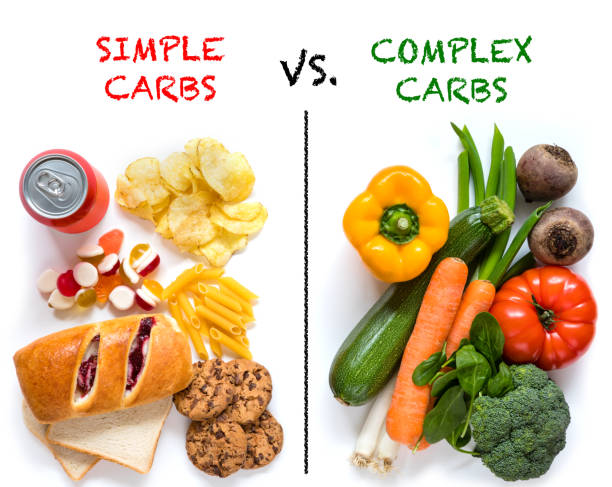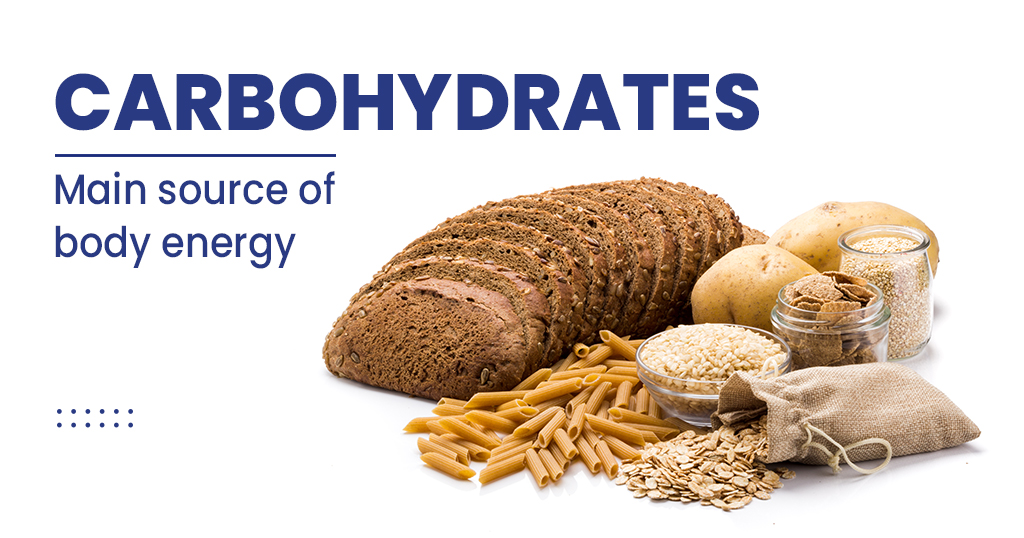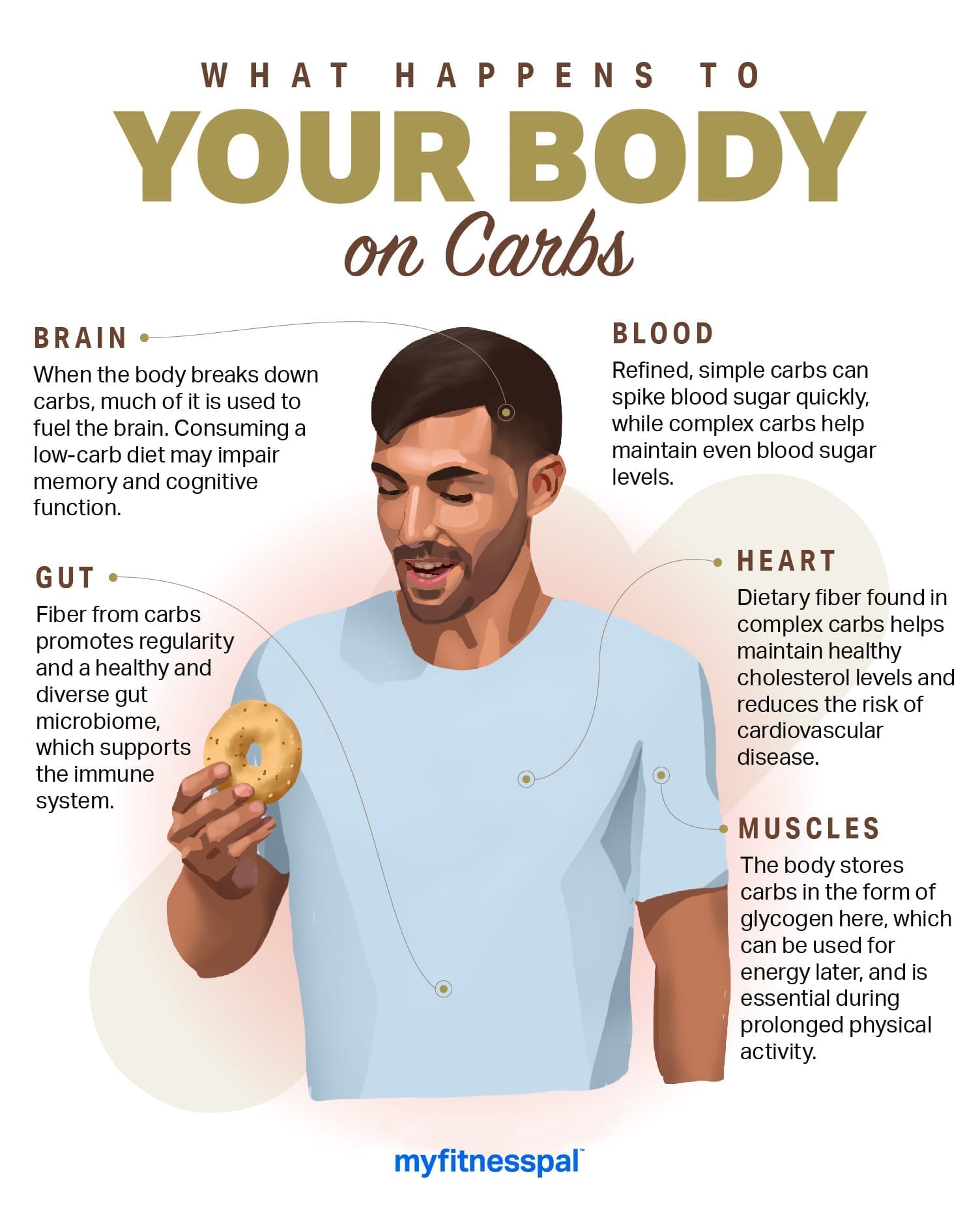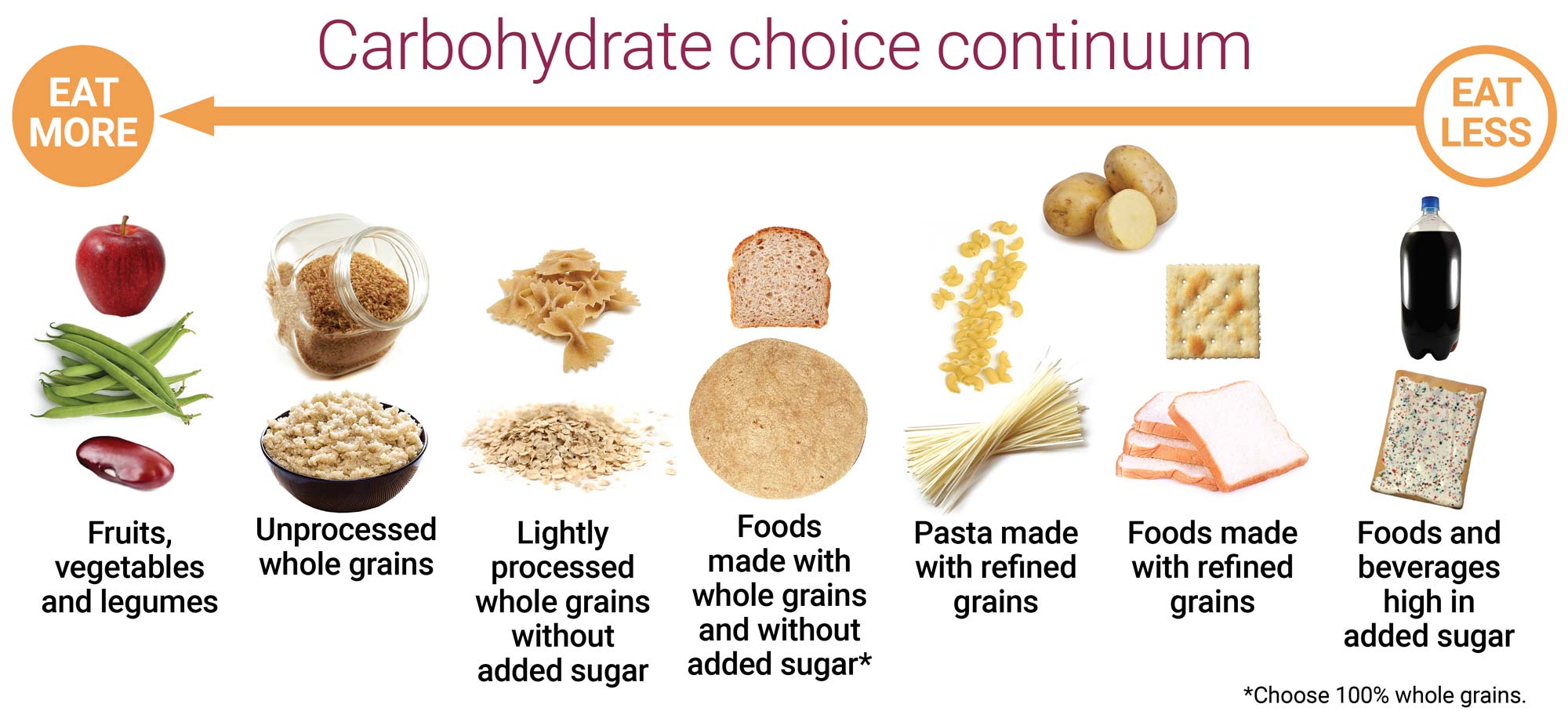The Truth About Carbohydrates: Busting Myths for Better Nutrition
Carbohydrates are an essential macronutrient that plays a crucial role in our diet and overall nutrition. They serve as a primary source of energy for our bodies, providing fuel for various physiological functions. However, carbohydrates have often been a topic of confusion and controversy, surrounded by numerous myths and misconceptions. These misconceptions can lead to misguided dietary choices and hinder our ability to make informed decisions about carbohydrate consumption.
In this blog post, we aim to debunk common myths and misconceptions about carbohydrates, providing you with accurate information to help you make informed choices about your diet. By dispelling these myths, we hope to shed light on the importance of carbohydrates in a balanced diet and highlight the potential risks associated with falling prey to misconceptions.
Myth #1: "Carbohydrates are bad for you"
One prevailing misconception is that all carbohydrates are unhealthy. Carbohydrates have been unfairly demonized, often associated with weight gain and certain health conditions. However, it is important to recognize that not all carbohydrates are created equal. It is the quality and type of carbohydrates that make the difference in their impact on health.
Carbohydrates can be broadly classified into two categories: simple carbohydrates and complex carbohydrates.
Simple carbohydrates are made up of one or two sugar molecules and are often referred to as "simple sugars." They are quickly digested and absorbed by the body, leading to a rapid increase in blood sugar levels. Common sources of simple carbohydrates include table sugar (sucrose), honey, syrups, candy, and sugary beverages. While simple carbohydrates can provide a quick burst of energy, they lack significant nutritional value. They are often referred to as "empty calories" because they provide calories without many beneficial nutrients. These carbohydrates are quickly digested and absorbed, leading to rapid spikes in blood sugar levels. It is this rapid increase in blood sugar that has given simple carbohydrates a bad reputation. Consuming excessive amounts of simple carbohydrates, especially from refined and processed sources, can contribute to weight gain, fluctuating blood sugar levels, and an increased risk of chronic diseases like type 2 diabetes and heart disease.
On the other hand, Complex carbohydrates are made up of multiple sugar molecules linked together in long chains. complex carbohydrates are found in foods such as whole grains, legumes, and vegetables. They contain starches and fibers that take longer to digest, providing a more sustained release of energy. This slower digestion helps regulate blood sugar levels, provides a feeling of fullness, and supports overall energy balance. Unlike simple carbohydrates, complex carbohydrates are accompanied by essential nutrients like fiber, vitamins, minerals and phytochemicals.
Fiber, in particular, is a type of carbohydrate that the body cannot fully digest. It adds bulk to the diet, supports digestive health, promotes satiety, and can help manage weight by reducing calorie intake. Choosing complex carbohydrates over simple carbohydrates is generally recommended for their nutritional value and beneficial effects on blood sugar regulation and overall health.
Healthy carbohydrate choices are abundant and provide essential nutrients alongside energy. Whole grains, such as quinoa, brown rice, and oats, are excellent examples. They offer fiber, which aids in digestion, and an array of vitamins and minerals necessary for optimal health. Fruits, such as berries, apples, and citrus fruits, provide natural sugars along with fiber and antioxidants, supporting immune function and overall vitality.
Vegetables should also be highlighted as nutrient-dense carbohydrate sources. Leafy greens like spinach and kale, cruciferous vegetables like broccoli and cauliflower, and starchy vegetables like sweet potatoes are all excellent choices. They provide carbohydrates along with essential vitamins, minerals, and beneficial plant compounds that support various bodily functions.
By focusing on these nutrient-dense carbohydrate sources, you can enjoy the benefits of carbohydrates while supporting your overall health and well-being.
One common myth surrounding carbohydrates is the belief that they are solely responsible for weight gain. Carbohydrates have often been scapegoated as the primary culprit behind expanding waistlines. However, the truth is more nuanced, and it's important to understand the role of overall calorie balance in weight management.
The misconception that carbohydrates lead to weight gain ignores the fundamental principle of energy balance. Weight gain occurs when there is a surplus of calories consumed compared to calories expended. This surplus can come from any macronutrient, not just carbohydrates. It is the overall calorie intake, regardless of the source, that determines weight gain or loss.
It's important to note that carbohydrates provide essential energy for our bodies to function optimally. They are the preferred source of fuel for the brain and muscles. When carbohydrate intake is severely limited, the body's glycogen stores (the storage form of carbohydrates) become depleted, leading to a condition known as "glycogen depletion." Research has consistently shown that glycogen depletion can negatively impact physical and mental performance.
In addition to physical performance, cognitive function can also be affected by inadequate carbohydrate intake. The brain relies heavily on glucose, which is derived from carbohydrates, as its primary energy source. Research published in the journal Psychopharmacology has shown that reducing carbohydrate availability can negatively impact cognitive function, including memory, attention, and mental processing speed.
Furthermore, athletes who engage in intense or prolonged exercise rely heavily on carbohydrates for optimal performance. Several studies have demonstrated that restricting carbohydrate intake can impair athletic performance, particularly in endurance events. For example, a study published in the Journal of Applied Physiology found that a low-carbohydrate diet reduced exercise performance and increased perceived exertion during prolonged cycling.
Portion control plays a significant role in weight management. While carbohydrates are an essential part of a balanced diet, excessive portions can contribute to caloric excess. Practice mindful eating, listen to your body's hunger and satiety cues, and aim for appropriate portion sizes that meet your individual energy needs.
Additionally, the overall quality of your diet is important. Pair carbohydrates with lean proteins, healthy fats, and plenty of vegetables to create balanced meals that provide sustained energy and promote feelings of fullness. Avoid excessive intake of sugary drinks, refined grains, and processed foods, which are often high in calories and low in nutritional value.
By adopting a balanced approach that includes portion control and making smart carbohydrate choices, you can enjoy the benefits of carbohydrates while maintaining a healthy weight.
Myth #3: "Low-carb diets are the best for everyone"
Restricting carbohydrates excessively can lead to certain limitations. As mention earlier, carbohydrates are not only a source of energy but also provide essential nutrients, including fiber, vitamins, and minerals. Fiber plays a crucial role in maintaining digestive health, regulating bowel movements, and preventing constipation. Research published in the Journal of Nutrition suggests that adequate fiber intake is associated with a reduced risk of developing various chronic diseases, including cardiovascular disease, type 2 diabetes, and certain types of cancer.
Many carbohydrate-containing foods are rich in vitamins, including vitamin C, vitamin A, various B vitamins (such as thiamin, riboflavin, niacin, and folate), and vitamin E. Fruits and vegetables, in particular, are excellent sources of vitamins. Carbohydrate-containing foods also provide essential minerals such as potassium, magnesium, calcium, iron, and zinc. Carbohydrate-rich plant foods are abundant in phytochemicals, which are natural compounds with potential health benefits. Phytochemicals have antioxidant and anti-inflammatory properties and are associated with a reduced risk of chronic diseases. Examples include flavonoids found in berries and citrus fruits, carotenoids in orange and yellow vegetables, and polyphenols in whole grains and legumes. A review published in the Journal of the American College of Nutrition emphasized the importance of consuming a diverse array of carbohydrate-rich plant foods to maximize phytochemical intake.
Moreover, the sustainability of low-carb diets can be challenging for some individuals. Strictly adhering to a low-carb regimen can be difficult over the long term, potentially leading to feelings of deprivation, social limitations, and difficulty in obtaining a well-rounded nutrient profile.
Instead of focusing solely on carbohydrates or any single macronutrient, it is crucial to emphasize the importance of balance and individualized dietary needs. Each of these macronutrients serves unique functions in the body and contributes to overall health and well-being.
Myth #4: "All carbohydrates are created equal"
A common misconception surrounding carbohydrates is the belief that all carbohydrates have the same nutritional value. However, it is important to recognize that not all carbohydrates are created equal in terms of their impact on our health and well-being. Understanding the quality of carbohydrates is key to making informed dietary choices.
The quality of carbohydrates refers to their effect on blood sugar levels, the presence of fiber, and their overall nutritional composition. This is where concepts such as glycemic index (GI) and glycemic load (GL) come into play. The glycemic index is a measure of how quickly a carbohydrate-containing food raises blood sugar levels, while the glycemic load takes into account both the glycemic index and the portion size consumed. This is important because even if a food has a high GI, consuming it in smaller portions may have a lesser impact on blood sugar levels.
Choosing carbohydrates with a lower glycemic index or load can help promote stable blood sugar levels, provide a steady supply of energy, and support overall health. Additionally, low-glycemic carbohydrates are often rich in fiber, which aids in digestion, promotes satiety, and supports a healthy gut.
Focusing on the quality of carbohydrates rather than solely their quantity is essential. Incorporating whole grains, such as brown rice, quinoa, and whole wheat bread, along with fruits, vegetables, and legumes, provides a wide array of beneficial nutrients and fiber. These complex carbohydrates have a lower glycemic impact and offer a host of health benefits, including improved blood sugar control, enhanced satiety, and reduced risk of chronic diseases.
It is important to note that not all carbohydrates need to be avoided or strictly limited. By understanding the differences in the nutritional value of carbohydrates and considering the concepts of glycemic index and load, we can make more informed choices that support our health and well-being.
Making Informed Choices About Carbohydrate Consumption
When it comes to carbohydrates, making informed choices is crucial for optimizing our nutrition and overall well-being. By incorporating practical tips into our dietary habits, we can ensure that we are selecting the right carbohydrates for our individual needs. Here are some key strategies for making informed choices about carbohydrate consumption.
Focus on whole, unprocessed carbohydrate sources
Choosing whole, unprocessed carbohydrate sources is a cornerstone of a healthy diet. Whole grains like brown rice, quinoa, and oats, as well as fruits, vegetables, legumes, and tubers, are excellent options. These foods are less refined and retain their natural fiber content, vitamins, minerals, and beneficial plant compounds. They provide sustained energy and offer a range of health benefits, including improved digestion and reduced risk of chronic diseases.
Fiber is an essential component of a well-rounded carbohydrate intake. It helps regulate blood sugar levels, promotes satiety, supports a healthy digestive system, and contributes to heart health. To prioritize fiber intake, opt for whole fruits instead of fruit juices, choose whole grains over refined grains, include plenty of vegetables in your meals, and incorporate legumes into your diet. These fiber-rich options will help you feel fuller for longer and maintain steady energy levels throughout the day.
Consider individual needs and activity levels when determining carbohydrate intake
Carbohydrate needs can vary depending on factors such as age, sex, body composition, and activity levels. It is essential to consider your individual needs when determining your carbohydrate intake. For highly active individuals or athletes, carbohydrates provide a vital source of fuel for optimal performance.On the other hand, those with specific health conditions may benefit from modifying their carbohydrate choices. Consulting with a registered dietitian or healthcare professional can provide personalized guidance to meet your specific needs.
Be mindful of portion sizes
While carbohydrates are an important part of a balanced diet, portion control is key. It is easy to overconsume carbohydrates, especially when they are readily available in processed and refined forms. Practice mindful eating by paying attention to your hunger and fullness cues, and be mindful of portion sizes. Balancing your carbohydrate intake with adequate amounts of proteins, healthy fats, and vegetables ensures a well-rounded meal that supports optimal nutrition.
By incorporating these practical tips into your carbohydrate choices, you can make informed decisions that support your health and well-being. Remember that nutrition is a dynamic process, and what works for one person may not work for another. It is important to listen to your body, experiment with different approaches, and seek guidance from qualified professionals to find the carbohydrate balance that suits your individual needs.
Conclusion
Making informed choices about carbohydrate consumption is crucial for maintaining a healthy and balanced diet. By focusing on whole, unprocessed carbohydrate sources, prioritizing fiber-rich options, considering individual needs and activity levels, and practicing portion control, we can optimize our carbohydrate intake for optimal nutrition and overall well-being.
Carbohydrates provide our bodies with essential energy and play a significant role in various bodily functions. However, not all carbohydrates are created equal. It's important to choose carbohydrates that offer nutritional value and support our health goals.





















Comments
Post a Comment